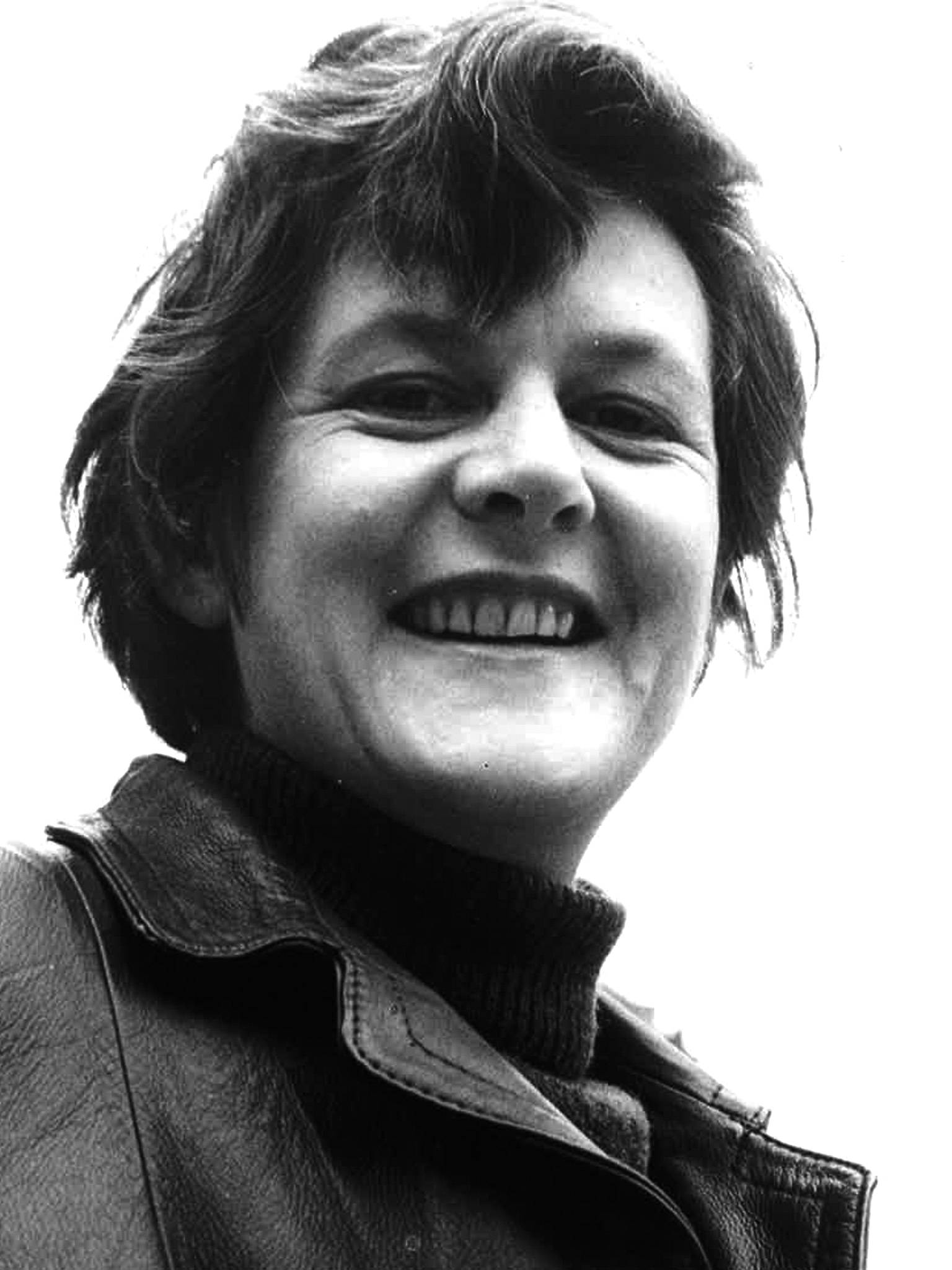Sheila Oakes: Activist who remained in the vanguard of the peace and anti-nuclear movement for more than half a century

Your support helps us to tell the story
From reproductive rights to climate change to Big Tech, The Independent is on the ground when the story is developing. Whether it's investigating the financials of Elon Musk's pro-Trump PAC or producing our latest documentary, 'The A Word', which shines a light on the American women fighting for reproductive rights, we know how important it is to parse out the facts from the messaging.
At such a critical moment in US history, we need reporters on the ground. Your donation allows us to keep sending journalists to speak to both sides of the story.
The Independent is trusted by Americans across the entire political spectrum. And unlike many other quality news outlets, we choose not to lock Americans out of our reporting and analysis with paywalls. We believe quality journalism should be available to everyone, paid for by those who can afford it.
Your support makes all the difference.If peace activists were given ranks, then Sheila Oakes would have been a general. For 11 years she was General Secretary of the National Peace Council, where her commanding presence fortified the peace movement under political attack in the Thatcher era.
In fact she had a military background. Her father was Lieutenant-General Sir Robert Sturges, a much-decorated Commander in the Royal Marines. Few colleagues would have known this until Oakes strategically revealed it during a television debate. Her opponent, General Sir John Hackett, argued that peace activists were naïve. "I'll have you know I'm the daughter of a general," she retorted.
With her sharp mind, fluent powers of argument and supreme self-confidence, it was better to have Oakes as your pugnacious ally than your adversary. Whether imparting the Latin names of wild flowers or the small print of UN documents, she was never shy about her own expertise.
Upholding family tradition, Oakes's mother Lesley (née Wiggett), sent her son to Winchester, but for her daughter chose progressive boarding schools, first at Brickwall in Sussex, and then Long Dene, a co-ed school in Jordans, Buckinhamshire. Sixty years later Oakes recounted how this remarkable school set her on a path completely at odds with the political ideology she had inherited. During the war, staff and pupils at Long Dene included refugees from Germany, Austria and Czechoslovakia; one child's family had fled because they were Communist, not Jewish. The music teacher came from Breslau, the maths teacher was a conscientious objector, and other COs worked as gardeners there, producing organic food.
This diverse community engendered vigorous political discussion. Oakes saw that despite their differences they all got on in a pacific way, and came to realise that, as she said, "there are ways of doing things by which you can avoid actual physical conflict at all levels."
Leaving school in 1945, she trained as a violinist and taught in Hackney, and at Trent Park teacher training college and Trinity College of Music in London. She joined an orchestra conducted by an Austrian refugee, Fritz Eichner, whom she married. (He changed his name to Francis Oakes when he was naturalised.) They divorced after seven years, though Sheila stayed in touch with many of their refugee friends whose wartime experiences had convinced her that "war is not an acceptable answer to anything if you can find another way". She did not, however, consider herself a pacifist.
Sheila learned all about atomic weapons by intensive study of Civil Defence training literature, joined the newly formed Campaign for Nuclear Disarmament in 1958, and was elected chair for 1967-68. She firmly believed that peace organisations should remain independent and non-aligned, and as General Secretary from 1975-86 she steered the National Peace Council (NPC) away from the influence of a few individuals sympathetic to the Soviet-backed World Peace Council by building a broad-based membership of 189 organisations, including some focussed on development, the environment and human rights.
The NPC was primarily a communications network, but it also took up specific issues. In 1977 Oakes gave evidence at the Windscale Enquiry about the plutonium connection between nuclear energy and weapons and in 1982 the NPC co-ordinated protest against the Falklands War. It had a Northern Ireland working group, and exploited opportunities for peace education such as the 1986 UN International Year of Peace.
Oakes was well-known internationally, especially in the non-governmental disarmament committees which lobbied the UN in Geneva and New York. As an NGO delegate she attended the UN Special Sessions on Disarmament in 1978, 1982 and 1988, as well as the review conferences of the Nuclear Non-Proliferation Treaty. For more than 20 years she fulfilled different roles in the Geneva-based International Peace Bureau and the International Confederation for Disarmament and Peace.
She became particularly close to the Japanese peace movement, frequently visiting Japan for the World Conferences against A- and H-bombs and, in 1977, an International Symposium on the damage and after-effects of the bombings of Hiroshima and Nagasaki. She hosted visits to Britain by hibakusha (A-bomb survivors) and supported the Japan Buddha Sangha, a pacifist order of monks and nuns who built the peace pagodas at Milton Keynes and Battersea Park. Representing the Special NGO Committee for Disarmament, Geneva, Oakes went to Japan in 1995 for events marking the 50th anniversary of the atomic bombings.
Extremely capable, energetic and dominant, Sheila Oakes was also very kind. Many overseas friends enjoyed her hospitality at her home in Belsize Park, London, her tables overflowing with papers, her jaunty sports car parked outside. In 2012 she moved to a care home in Brighton, where she died. She is survived by her niece and nephew, Fiona and Robert Sturges.
VALERIE FLESSATI
Sheila Oakes, peace activist: born 7 April 1928; married Fritz Eichner (Fritz Oakes) (marriage dissolved); died 21 January 2014.
Join our commenting forum
Join thought-provoking conversations, follow other Independent readers and see their replies
Comments